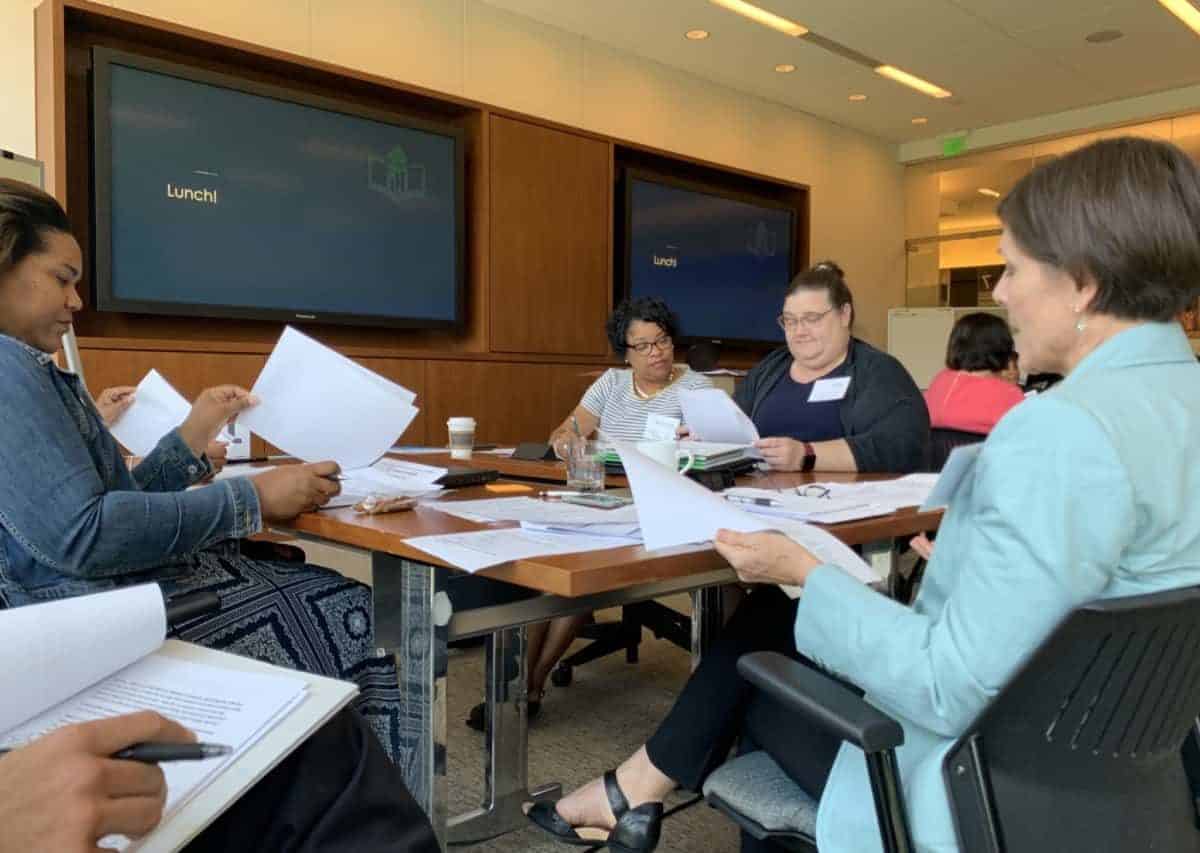

Ben Riley remembers sitting on his couch reading Daisy Christodoulou’s book Seven Myths About Education. Before the book even begins, while still in the introduction, he came across the words that would sow the seeds of Texas-based Deans for Impact, the nonprofit he founded which connects leaders of educator preparation programs to help them transform their programs and influence policy that affects their work.
“After I had been teaching for three years, I took a year out to do further study,” Christodoulou wrote. “I was shocked to stumble across an entire field of educational and scientific research which completely disproved so many of the theories I had been taught when training and teaching. I was not just shocked; I was angry.”
How could this happen, Riley wondered.
“Man, if there’s some things that would be helpful for teachers to know before they started teaching,” he thought, “and there are programs that are responsible for helping them learn things before they start teaching, we can solve that problem.”
He brought that proposition to a group of deans and faculty from North Carolina schools of education who compose a “Community of Practice” (CoP) for addressing early literacy and learning training at North Carolina’s schools of education. The CoP, the first of what will be several, was created by the UNC System’s Education Preparation Advisory Group (Advisory Group), a 20-member group brought together by the UNC System Office in efforts to prioritize system-wide efforts to accelerate improvement in teacher preparation, with an initial focus on the teaching of reading. The Advisory Group was convened last year directly in response to a report by then-UNC System President Margaret Spellings called: “Leading on Literacy: Challenges and Opportunities in Teacher Preparation Across the University of North Carolina System.”
The Advisory Group took applications from a number of schools of education within the state, settling on five — Elon, UNC-Charlotte, UNC-Pembroke, Western Carolina and Winston Salem State — to convene and explore how North Carolina’s educators can be better prepared coming out of college to use evidence-based methods of teaching reading to young public school students.
It was this group, at their second-ever meeting last week, that Riley addressed. Riley’s organization, Deans for Impact (DFI), is experienced working with groups to affect changes to educator prep programs, as well as help them to advocate for policy changes to state laws.
“North Carolina is different and special,” Riley told the CoP gathering on Tuesday. “It has been since the inception of Deans for Impact. We’ve had more leadership on per capita representative basis in North Carolina than from any other state. It started from our inception, and it’s sitting here in this room now. And it’s a tribute to the fact that all of you are here in June, late June, willing to think about and work on these problems.”
In truth, the work began long before the group entered the room last week. The CoP is engaging with a publication Deans for Impact prepared specifically for them, entitled the Science of Early Learning, which collects evidence-based strategies for helping prepare teachers to improve students’ agency, literacy, and numeracy.
On Tuesday, representatives from the five schools shared a program strategy they tried and, through clarifying and probing questions, worked together to see what other schools could glean from the experience and where the reporting school could improve its implementation.
“This group has an opportunity to influence, in North Carolina, what educator preparation looks like in the coming years to ensure that it’s founded on evidence-based practices in early learning and literacy,” DFI Director of Policy Amy Wooten said. “And to help define for the field what are the changes that might need to be made in order to achieve that goal. And then in addition to that, knowing what changes we might want to make, we are the group that can best make policy recommendations to our leaders who are thinking deeply about that.”
Acknowledging that there is a void in policy voices coming from schools of education, as well as a misconception that schools of education are resistant to change, the CoP spent significant time considering policy changes to support evidence-based instruction in the teaching of reading.
They reviewed a summary and draft of Senate Bill 438, the Excellent Public Schools Act of 2019 proposed by Senate President Pro Tempore Phil Berger, R-Rockingham.
“I think there’s every opportunity for this state to be seen as the leader — the leader — when it comes to thinking about how to redesign both policy and program in ways that ensure teachers understand the science of learning and are doing what they need to do to implement it in a very real way in the classrooms that they teach,” Riley said.
The early learning and literacy CoP is the beginning of that leadership. In the coming months, the UNC System Office will convene additional CoPs around urgent topics in teacher preparation beyond early literacy, such as recruitment, clinical experience, and getting educators ready for Day 1 in their classrooms. The CoP groups aren’t set in stone — open both to revision as well as adding new communities. In September, the Advisory Group plans to release a full report on their findings, CoP goals, and structure, which they will also send to the UNC Board of Governors.
“The strategies that the Advisory Group has prioritized will take the form of opt-in communities of practice for our EPPs that are each focused on a very specific topic that we know we need to improve on and make of more consistent quality across the System,” Kowal said. “… We want to build on the talent and success we have in our own institutions to accelerate improvement across the System, and help to connect those experiences with policymakers’ priorities to improve outcomes for our students.”
This story incorrectly omitted Western Carolina’s name from the list of schools in the CoP when it was published on Monday, July 1. The story was updated Tuesday, July 2.


